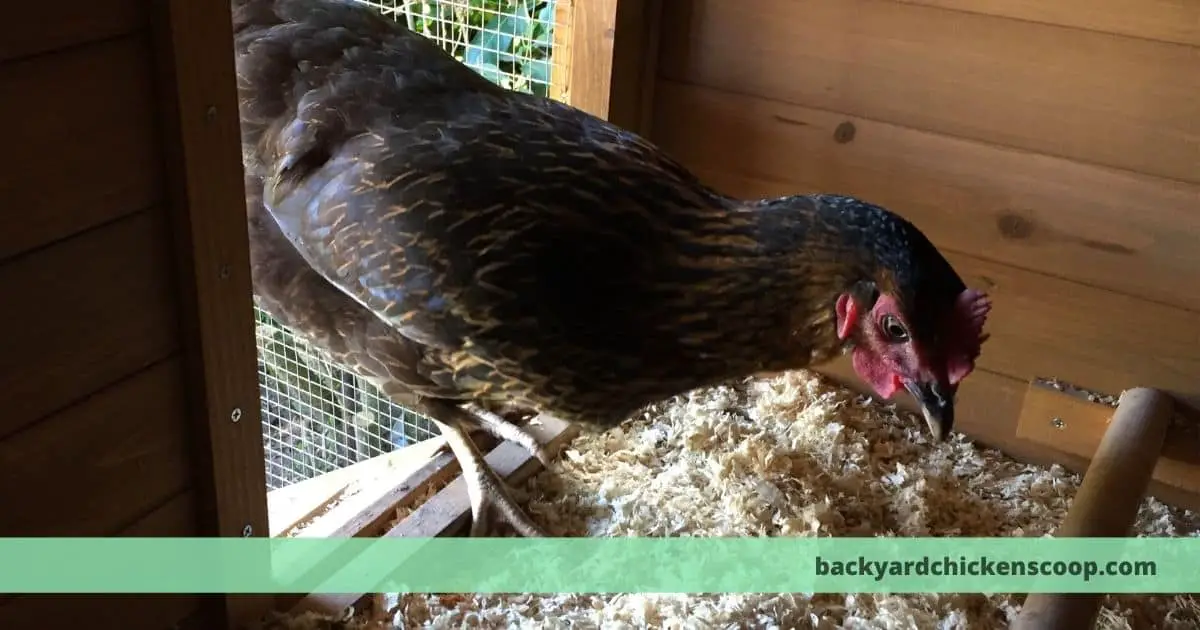Chicken coop nests are probably the most essential component of a chicken coop. Therefore one of the first things you will need to have en place is the nests for your chicken coop. As chickens start using nests when they are about 17 weeks old, they will need them quickly.
As people try to eat healthier food, they are quickly adopting strategies like keeping chicken in the backyard. This practice means you know what your chicken are feeding on and are therefore assured of the quality of meat and eggs. When you decide to keep chicken in your backyard, a good chicken coop is a must have. This is the house and home for your poultry which must be secure, dry and sufficient.
There are many factors to consider when building or buying a chicken coop to ensure it is a fitting home. Some of the points to bear in mind are:
How many nesting boxes do I need for 6 chickens or 12 chickens?
As a vet, I recommend you have 2 nesting boxes for 6 chickens and 3-4 for 12 chickens. The general advice is approximately 1 nest for every 5 chickens. Having 1 or 2 extra will leave room if one gets too dirty or breaks.
Space
When building you must ensure that your birds have sufficient indoor space and outdoor access. They need approximately 4 sq. ft. indoors and 5-10 sq.ft. outside. The outdoor area should be covered with a roof to protect from harsh weather and soaring predators.
The space requirement suggested here does no include outdoor access and suitable for medium-sized birds
| Age | Feeder space | Water space | Floor space | Nests |
|---|---|---|---|---|
| 0 – 6 weeks | 0.7″ or 1.8 cm | 0.5″ or 1,3 cm | 100 sq or 645 cm² | No yet needed |
| 6 – 18 weeks | 1.5″ or 3,8 cm | 0.6″ or 1,5 cm | 250 sq or 1600 cm² | Just 1 (or a couple) for training |
| 18 weeks and older | 3″ or 7.6 cm | 0.75″ or 1,9 cm | 380 sq or 2450 cm² | 1 for every 5 chicken |
Safety
You don’t want your birds outdoors where they can be snatched by predators. It is therefore essential to have a predator-proof outdoor space where your chicken can play in peace.
The nests will need to be indoors and in a darkened space, where you girls can feel safe. It will help your management good forward if you still have access to the nests from the outside. But this is not required.
Air
Birds need fresh air at all times. Windows and ventilation holes are good to have no matter the climate. Keeping birds in a totally sealed space exposes them to ammonia which could harm them.
Dust particles and mold will also affect your chickens, so having the coop and nesting area well ventilated is necessary at all times.
Draft is also a concern, so you on the other hand still want the nesting area to be sufficiently covered.
Light
A dim-lit chicken coop disrupts the hen’s sleep, laying, and waking cycle. These birds need extra hours of light so they can keep laying. To ensure that the coop is well-lit install electrical outlets and bulbs with a timer. This keeps things consistent to have the birds on a steady schedule.
This is expressly necessary in parts of the world where the length of the days shifted through the year. Shifting daylight will not harm your birds, but can affect the egg-laying cycle.
The nesting boxes themself need to be darkened somewhat.
Chicken coop nests
A chicken coop nest is basically a small cubicle for laying eggs. The sole purpose of a chicken coop nesting box is to have a clean place for hens to lay. A properly build chicken coop nest ensures that eggs are in the best environment for hatching and collecting.
There is an increased risk of egg breakage, contact with fecal matter and damage is hens are allowed to lay eggs on the ground.
Chicken coop nests are probably the most essential component of a chicken coop. It is such a great addition that some chicken starts sleeping in them. This habit should be discouraged so that the birds learn that the coop nest is only for eggs. Never leave the coop nest dirty because it will attract parasites that will deter hens from laying in them.
Always collect eggs as soon as they are laid to prevent your birds from damaging them.
Where do you chicken coop nests?
You can build the chickens nest yourself, but there really are quite inexpensive. The wooden ones will coast you around 20-40 $. The metal or plastic ones will go as high as 150 $. You can see the current prices on Amazone here… (not an affiliate link)
I prefer the plastic ones as I find them more hygienic and easier to clean thoroughly.
If you’re in a hurry you can use some cheap plastic storage boxes and a side out. Just make sure your cut-lines are not sharp.

